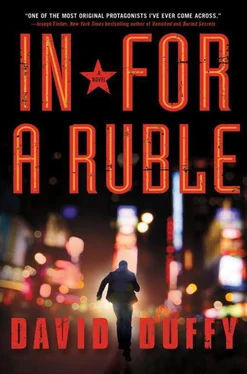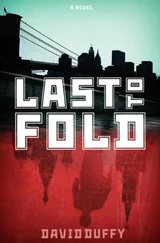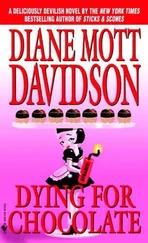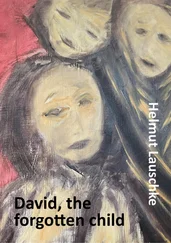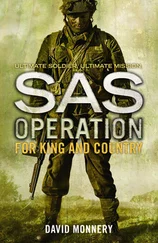Hayfields Drive ran south out of town, a big leafy road, or would be come spring, with a wide double yellow stripe. The houses here were bigger and whiter and grayer. The owners weren’t mowing their own lawns. A tall wrought-iron fence demarcated the border of the school’s property and paralleled Hayfields Drive for the better part of a mile until I came to the entrance. No sign, but two square stone columns supporting iron gates with medieval coats of arms left little doubt this was an institution that took its importance seriously.
The Duke of Wellington supposedly said the Battle of Waterloo was won on the playing fields of Eton. Gibbet School had taken the Duke at his word and was doing everything it could to apply the principle in the land that won a revolution against his countrymen. Gibbet’s playing fields stretched in all directions—soccer, football, baseball, track and field—snow-covered now, but ready as soon as spring arrived to prepare this generation of aristocratic kids for the next nineteenth-century war. Scattered among the fields were copies of eighteenth-century Georgian buildings and a late Gothic chapel. The Valdez was decidedly out of place.
I parked the car and strolled the plowed pathways through the fields and buildings. No one else was out, which meant no one questioned my presence, but there was no one for me to question either. Sunday night, the buildings were all locked, dorm and nondorm alike. The chapel, administration building, gym and performing arts center were dark. Lights in the dorms, built to look like houses, as well as in the Russell Wilcox Stu-Fac Center, which all required an electronic pass to get into. The place exuded as much welcome as the Gulag camps I grew up in.
I found Martin Lane, the side road Gina had described, a quarter-mile cul-de-sac with three houses and a barn. Parked in the driveways were a Ford Explorer, a Saab, two Subarus and a Dodge Ram pickup. No BMW, but it could have been in the barn.
Four and a half miles away, Main Street, Crestview, was a study in contrasts. A hardscrabble, working-class town, whose best days were a century behind it. The houses were side-by-sides and double-deckers, many with peeling paint. At 8:30 P.M., the sidewalks were all but rolled up. Downtown was next to a rail yard and handsome enough in a way that evoked its blue-collar roots. The business district stretched four blocks. About a quarter of the store fronts were empty. The pizza place anchored one corner. The grocery was two doors down. Both looked exactly like they should. A half-dozen chrome-legged tables and fake leather chairs filled the former, racks of the supposed staples of modern life—chips, soda, cereal, toilet paper, and laundry soap—the latter.
I pulled into a parking spot across the street from the liquor store at the other end of the block. The lights were still on there as they were at the pizza place and the grocery. The rest of the street was dark. Enough parked cars to give me cover. It had been snowing heavily when I left LaGuardia, but the storm hadn’t moved this far north yet, a good thing for me. A chilly, dark night, cloud covered sky, no moon. Also all to the good for my purposes. The snow was coming, though. I could feel it.
I sat in the dark for fifteen minutes. Two cars and a police cruiser passed. None paid me any attention. No pedestrians. I could see the guy behind the counter in the liquor store reading the paper, marking time until closing. No light or sign of life from the second floor. At 8:55, he stood and folded the paper. A few minutes later the lights went off. A minute after that, he came out, and turned to lock the door behind him. He walked down the block until he came to a Honda showing more than a few years of age, unlocked the door, climbed in and drove away. The grocery store closed a few minutes later. The pizza joint was the only life left, maybe still hoping to sell a pie or two to the kids from Gibbet School. Or it didn’t know it was done for the night but was holding true to its hours.
Gina said Irina came last night at 9:50, the others around the same time the night before. After dinner, after study hall, after they were supposed to be tucked in for the night. No way of telling whether anyone would show up tonight, but if they did, I doubted they’d come any earlier. I made sure the dome light was off, checked the rearview mirror, and pushed open the door. A gust of damp wind cut through my flannel pants. I locked the door quickly in case the guy in the pizza joint—or anyone else—was paying attention, trotted across the street, and took shelter in the shadows. I walked down the block, sticking close to the dark building, all but invisible, I figured, turned the corner and went around back. A parking lot of mostly broken pavement. A couple of Dumpsters backed up on train tracks that hadn’t been used in years. Like Gina said, a single bulb shone over a doorway at one end of the building. An iron fire escape dropped from the second floor at the other. The windows were all dark. A rat scrambled across the lot, coming straight at me, until it veered off and found protection under one of the Dumpsters. Supper time.
I returned to the Valdez and its heater, mildly regretting not buying a pint of vodka before the liquor store closed. Never a good idea to drink on duty, but who knew how long I had to wait. The Boston public radio station played a recording of Shostakovich’s preludes and fugues. I knew the record—the pianist, Tatiana Nikolayeva, supposedly had inspired the pieces. You don’t hear it often. I sat in the dark, marveling at Shostakovich’s ability to write a series of works in which not one, but two, beautiful songs played off each other, point and counterpoint, with absolute harmonic perfection in every note. Bach had done it three hundred years earlier, of course, but for my money, Shostakovich had raised the bar. Bach would argue that Shostakovich cheated—he employed dissonance.
Shostakovich had morphed to Mozart just after 10:00 when a pair of headlights turned into Main Street from the direction I faced. I slid down behind the wheel as a dark colored 3 Series BMW came straight toward me until it swung off into the parking lot behind the liquor store. I waited until the lights were out of sight and ran to the alley at the other end of the building, not worrying this time about who might see me. I reached the back in time to see a young woman, tall and blond, unlock the door below the lightbulb and go inside.
I walked back to the train tracks, looking up, waiting for a light to go on.
Nothing.
No light on the Main Street side either. I returned to the parking lot. Still dark. As Gina said, they had the windows blacked out.
I was heading back to move the Valdez when more headlights swung into the lot. They belonged to a black Cadillac Escalade, which looked a lot like the black Cadillac Escalade I’d last seen in Long Island City. I followed the rat to the Dumpsters, ducking behind before the SUV’s lights swept across. Then they were gone. I peeked out to see the taillights turn left onto Main Street. I stayed where I was.
Two minutes… Three… Four…
Fifteen before the headlights announced the Escalade’s return. I didn’t move.
This time, the driver did one revolution of the parking lot, pulled up next to a rundown concrete structure that had once been part of the rail yard and maybe still was. The same spot I’d been thinking to park the Valdez. I couldn’t see the driver but any doubt was erased by the New York plates.
I waited a cold half hour, checking my watch while I shivered, to see if Nosferatu would get out of the car. Three brief flashes of light from the cab indicated he hadn’t kicked his smoking habit. When I was convinced that he was waiting, as I was, I crossed the tracks, bent low until I was shielded by buildings on the other side. I took a circuitous route back to the Valdez. Gambling, I moved it, lights off, to the rail yard behind the parking lot, next to a building where it was all but hidden but still had a distant view of the Escalade and the lighted door beyond.
Читать дальше
